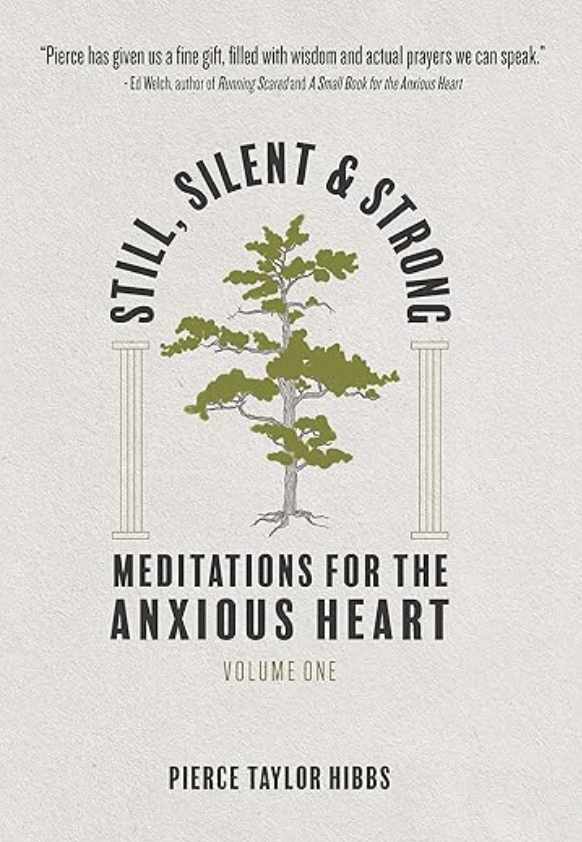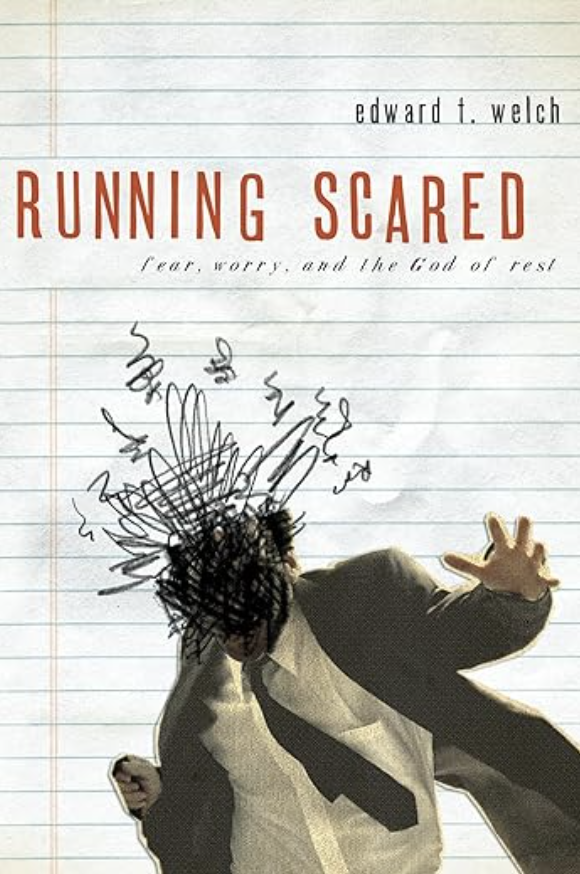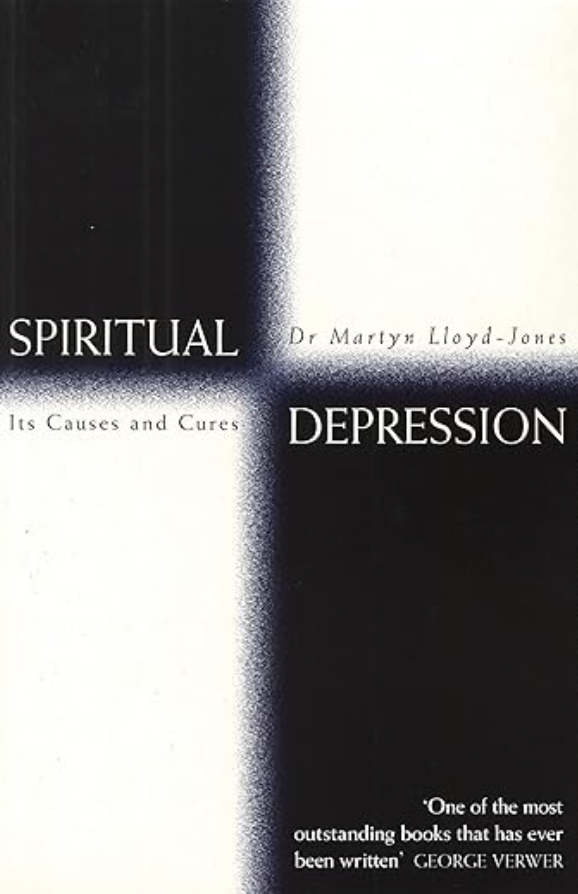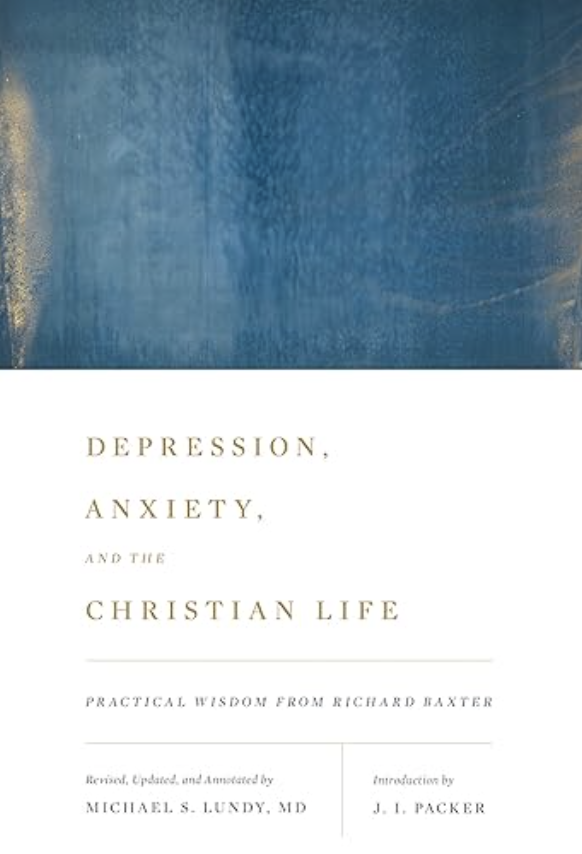Depression and Anxiety
1 - Beginner
Still, Silent, and Strong: Meditiations for the Anxious Heart
Pierce Taylor Hibbs

An excellent companion to Hibbs’ book Struck Down But Not Destroyed (see below), this is a short series of devotions driving the reader to meditate upon the peace and grace that comes to us through Christ in the Gospel. I could have put this in the “devotionals” section, but this book is uniquely geared toward ministering to those who are battling anxiety.
1 - Beginner
Running Scared: Fear, Worry, and the God of Rest
Edward T. Welch

This is my favorite entry-level book on the topic of anxiety, and less challenging of a commitment than Struck Down But Not Destroyed. If you would rather not commit to a lengthy book on this topic, I would come here first. I trust Welch on this topic, and have again found much help in reading his books on depression an anxiety.
1 - Beginner
Depression: Looking Up from the Stubborn Darkness
Edward T. Welch

I greatly appreciate Ed Welch, and have turned to him not only for help with my own heart, but for helping others. In the case of this particular book, Welch neither treats depression as a solely physical problem, nor as an exclusively something that is the fault of the sufferer. Welch’s approach is entirely biblical in its focus, and is hopeful in its posture. This is the first book I would recommend to someone who either thinks they might be depressed, or who has a loved one they are trying to help who might be depressed.
2 - Intermediate
Struck Down But Not Destroyed: Living Faithfully With Anxiety
Pierce Taylor Hibbs

Pierce Taylor Hibbs writes about anxiety, not from a removed distance, but as someone who has suffered with it personally. One of the overarching themes of this book is that we can learn to embrace anxiety as a spiritual tool in the hands of God. This is a rather lengthy treatment of the subject, but if you find yourself in the midst of it, I believe you will find Hibbs to be a capable guide and encouragement.
2 - Intermediate
Spiritual Depression: Its Causes and Cures
D. Martyn Lloyd-Jones

In this book Martyn Lloyd-Jones is addressing the average Christian’s temptation to be downcast, and to struggle to love and believe the gospel. It is not my belief that “spiritual depression” and “clinical depression” are necessarily the same things, nevertheless, for the average Christian, this book has a powerful idea at its core: that God intends for us to be ministered to by him, and yet that this is done by taking the word of God and applying it to ourselves. As Jones puts it at the end of the first chapter: “The main art in the matter of spiritual living is to know how to handle yourself. You have to take yourself in hand, you have to address yourself, preach to yourself, question yourself. You must say to your soul: ‘Why art thou cast down’—what business have you to be disquieted? You must turn on yourself, upbraid yourself, condemn yourself, exhort yourself, and say to yourself: ‘Hope thou in God’—instead of muttering in this depressed, unhappy way. And then you must go on to remind yourself of God, Who God is, and what God is and what God has done, and what God has pledged Himself to do. Then having done that, end on this great note: defy yourself, and defy other people, and defy the devil and the whole world, and say with this man: ‘I shall yet praise Him for the help of His countenance, who is also the health of my countenance and my God’.”
3 - Advanced
Depression, Anxiety, and the Christian Life: Practical Wisdom from Richard Baxter
Michael Lundy

Sadness, dejection, and hopelessness can very often be the experience of any Christian. For some, it may be a comfort to know that these are not recent or new experiences. For the Puritan writer Richard Baxter (1615-1691), helping those who suffered from depression was a very important aspect of his ministry. Baxter takes the spiritual role that depression might play in the life of a saint. While we might always think that depression is meant to be relieved and lifted, in reality even depression can be used by God to shape us in ways we would not be shaped without it. Baxter’s examination of this topic is a real treasure and will be of help to those who want to understand this topic with mature eyes of faith.
